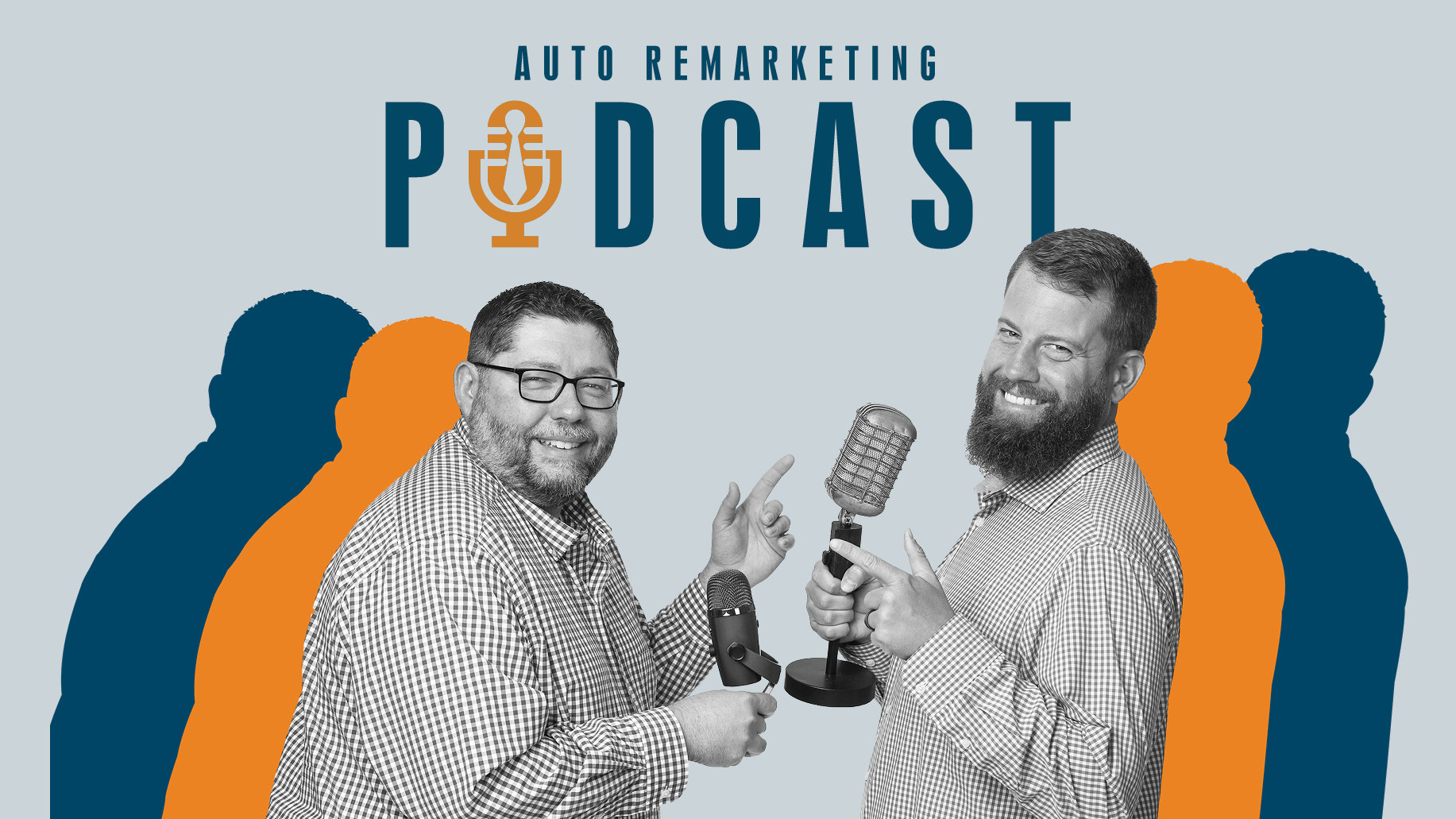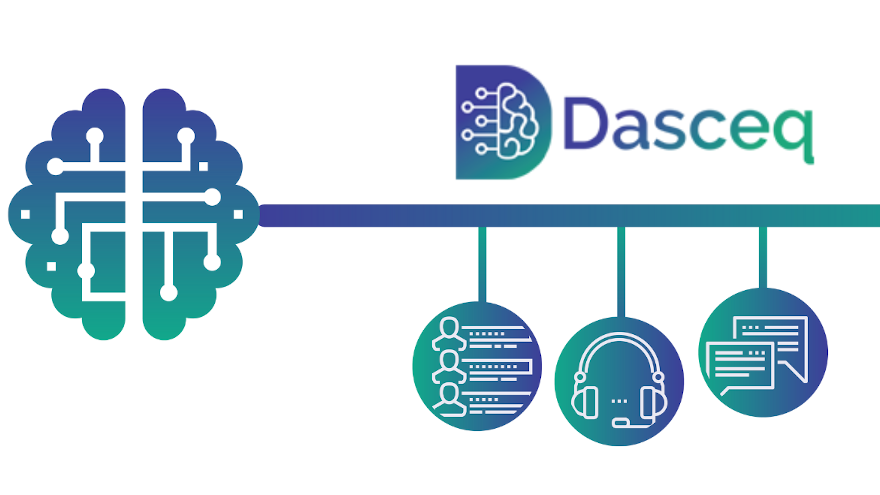Westlake Portfolio Management grew its servicing department by reaching agreements with two companies that specialize in the subprime auto space.
Last week, Westlake announced it formed a servicing partnership with Nicholas Financial, an auto and consumer finance company based in Clearwater, Fla.
As previously mentioned in a report from SubPrime Auto Finance News, Westlake also said last week that it has been selected by Car Capital, a finance company and a subsidiary of Car Capital Technologies based in Grapevine, Texas, as its primary servicer for its active portfolio.
Westlake said through a news release that it began providing servicing operations Dec. 1 for Nicholas Financial’s existing portfolio, which includes 24,000 active and charge-off contracts with a total principal balance of approximately $165 million.
WPM said it also will handle the servicing for Nicholas Financial’s new originations.
“We are extremely excited about our partnership with Nicholas Financial,” said Todd Laruffa, vice president of Westlake Portfolio Management. “Nicholas has an excellent reputation in the industry and a very experienced and talented management team.
“As their servicing partner, we can offer our scale and expertise which will allow Nicholas to optimize the productivity and performance,” Laruffa continued in a news release.
As part of Nicholas Financial’s ongoing restructuring plan, the goal of the partnership with WPM is to revamp its operational structure and alleviate additional expenditures by utilizing Westlake Portfolio Management’s technology, scale, and experience.
“When reaching this decision, Westlake was the clear choice to begin this business venture with, and we are looking forward to this future partnership,” Nicholas Financial CEO Mike Rost said in the news release. “We have no doubt that they will surpass our expectations while simultaneously helping to make this an easy transition toward the new direction our company is heading.”
Meanwhile, WPM also now is the primary servicer for Car Capital’s $105 million active portfolio.
“Through this partnership, we will be able to capitalize on Westlake’s scale, expertise, and efficiencies to help improve our loan performance, while still providing great customer service to all of our customers,” Car Capital co-founder and CEO Justin Tisler said in another news release.
In November, Car Capital shared details about its plan to pause originations and reduce its workforce.
The partnership with WPM provides Car Capital with the opportunity to utilize Westlake’s technology, thus rendering its underwriting and operations more effective.
Westlake Portfolio Management will assume all servicing related duties on both active and inactive contracts, which includes treasury services, custodial duties, title management, repossession, recovery, and remarketing.
“We look forward to offering Westlake’s technology and industry experience to lower costs and optimize productivity for Car Capital,” Laruffa said. “We are confident that this alliance will be beneficial to WPM, Car Capital and their customers.”
Westlake Portfolio Management is a servicing company with the infrastructure to provide third-party primary and backup servicing to medium- and large-scale portfolios.
Finance companies, credit unions, dealerships, and auto loan holders interested in learning more about WPM are invited to contact WPM directly at (877) 854-5688 or visit online at https://www.wpmservicing.com.
This special episode of the Auto Remarketing Podcast was recorded during Used Car Week and features the Women in Collections & Recoveries honorees who were able to make the trip to San Diego in November.
The panel discussion moderated by Belinda Beyer of American Recovery Service features Claudia Plascencia of Resolvion, Bryanna Cox of Asset Resolutions, Danyell Price of Byrider and Raquel Thrist of Stellantis Financial Services.
To listen to the conversation, click on the link available below, or visit the Auto Remarketing Podcast page.
Download and subscribe to the Auto Remarketing Podcast on iTunes or on Google Play.
Nordis Technologies and Solutions by Text (SBT) contend that a growing number of auto finance company customers want to receive statement alerts and payment reminders by text, especially with direct links to online account management and payment portals.
To enhance integrated omnichannel customer communications with expanded text messaging capabilities, the companies finalized a partnership on Wednesday so Nordis Technologies’ clients can now compose and send one-time and recurring, compliant text messages using the company’s patented Expresso CCM platform, enabled by SBT.
“We are dedicated to developing and delivering the best omnichannel communications options and experiences for our clients and their customers. For text messaging, we’ve teamed up with SBT to bring a best-in-class compliance-first approach,” Nordis Technologies founder and CEO Ronnie Selinger said in a news release.
“For clients who want to add or expand text messaging to cater to customer preferences, we offer a single CCM platform for creating and managing any combination of text, email and paper communications,” Selinger continued.
Nordis Technologies’ expanded capabilities can let companies introduce and customize text messaging programs to improve customer experience, reduce postage and printing costs and accelerate payments.
Clients will have the ability to send document links via text that present statements and letters composed and archived in Expresso.
In addition, clients have access to:
• Dedicated short codes and long codes (10DLCs) for sending messages
• Branded URLs using SBT’s SmartURL product
• Bulk SmartURL integration with existing file process automation in Expresso
• Robust archiving, reporting and tracking in Expresso
• Expert compliance consulting and text messaging best-practices guidance
“For many companies, text messaging remains an untapped opportunity to improve customer engagement and operational efficiency. We are delighted to team with Nordis Technologies to efficiently enable their clients to deliver messages through the channels customers prefer,” SBT CEO David Baxter said in the news release.
The Arizona Creditors Bar Association recently offered its explanation for what Proposition 209: The Predatory Debt Collection Protection Act could do to collections within auto finance and other creditor segments if voters in the Grand Canyon State approve the proposal in November.
First, according to material shared with SubPrime Auto Finance News, the association explained what this initiative could do to Arizona residents and businesses, including:
—Creates a $51,000-per-earner threshold for garnishments. Arizona’s median income is $51,000. This means those earning below the threshold cannot be garnished. Those earning above the threshold will have to make up the difference.
—Arizona residents will suffer a significant decrease in their access to credit. They will need much larger down payments to acquire credit for necessities like vehicles and appliances.
—When available, credit will become much more expensive (via higher interest rates) to make up the difference.
—Banks and lenders will take huge losses for existing loans that will become uncollectable if this initiative becomes law. Judgment creditors that have already fought and won their legal cases will see an immediate and permanent drop in recoveries.
Next, the association explained what this initiative could do to state laws, including:
—Eliminates approximately 60-70% of active wage garnishments on civil judgments, leaving businesses, landlords, and judgment creditors without legal recourse for unpaid debts.
—Effectively eliminates bank garnishments by allowing judgment debtors to legally hide $5,000 in a bank account from creditors.
—Raises the Arizona Homestead Exemption — the amount of home equity protected from unpaid businesses and creditors — to $400,000.
—Creates below-market-rate caps on interest rates related to medical debts and drastically increases a host of other personal property exemptions.
Those eight bullet points prompted association officials to ask: “How will your business model change if you cannot force people to pay their bad debt? Who will loan money to consumers if half of the state is untouchable?”
To learn more about the issue and what the Arizona Creditors Bar Association and other state organizations and business are doing, go to ProtectOurAZ.com.
Through a recent installment of its tip of the week, Ignite Consulting Partners tackled a strategy that some collections departments might use to kickstart stalled efforts to find and reach their delinquent account holders.
Perhaps the opposite of text messaging, Ignite acknowledging that some collections departments use door knocking to try to physically find the contract holder. Before offering four recommendations if managers want to proceed, Ignite’s compliance experts explained three considerations before embarking on that path.
“Collections is an inherently risky activity and can be compounded by door knocking. In general, Ignite takes the position that in-person door knocking, if not done right, can add additional risk, such as the safety of your customers and employees. There are several things to consider if you are going to use this collections strategy,” the firm said in a recent industry message.
“First, you need to have a robust written policy documenting the purpose of the activity,” Ignite continued. “Second, once you have documented your accepted procedures, you must implement a demonstrable, ongoing training program to ensure employees are adhering to the written processes.
“Third, you need to have an audit function that looks at aspects of the process like success rate and complaints. This audit function should be reviewed in a monthly or quarterly review and used to identify and correct any issues,” the firm went on to say.
At the very least, Ignite said collections departments should consider these four elements when using or implementing a door-knock program:
• Don't lie about who you are or why you are there
• Confirm the identity of the person you are speaking with
• Don't share any information with a third party
• Have a conflict avoidance process
“Other considerations might include your insurance in the instance an employee is injured, or they get in a wreck,” Ignite said. “Does your insurance cover those activities? Are they driving company cars or their own cars? What happens if they get in a wreck conducting company business in their personal vehicle? These are all situations that involve risk for the employee, the customer, and the company.”
Still want to proceed with door knocking? Ignite said managers can discuss strategy in more detail with its firm experts by sending email to [email protected] or calling (817) 928-4303.
Nordis Technologies recently unveiled a new white paper that asserted cloud-based customer communications management (CCM) technology enables billing and collections firms to keep up with proliferating rules and requirements for how they are allowed to communicate with consumers about delinquent debt
According to white paper titled, “Gain Control of Your Omnichannel Collections Communications,” another key takeaway is that omnichannel cloud CCM platforms can give accounts receivable management (ARM) companies the control and agility needed to stay compliant and effective in connecting with consumers and increasing recovery.
“We needed the flexibility and ability to react as fast as the industry changes,” Simon’s Agency chief operating officer Tim Buckles said in the white paper. “We also wanted a CCM system that let us take advantage of new digital channels. It’s critical to staying current and relevant.”
Secure and HIPAA-compliant, Nordis Technologies explained that cloud CCM systems can let collectors simplify, expedite and automate development, distribution and updating of print and digital debt communications.
Thanks to its easy-to-use CCM platform, early-out and bad-debt collections leader Meduit implements new letters in 24 to 48 hours and any subsequent edits are made in minutes.
Before moving to a CCM system, Meduit spent 30 to 60 days simply setting up letters with vendors for each new client, according to the white paper.
“In this fast-paced, complicated collections environment, manual processes and slow, costly back-and-forth with letter vendors won’t cut it,” said Bryan Ten Broek, vice president of business development for Nordis Technologies and white paper author.
“To successfully navigate the changing regulatory and business landscape for debt communications, accounts receivable management companies need to leverage CCM software to digitally transform their operations and improve consumer engagement and collections,” Ten Broek continued.
The white paper details how CCM technology delivers significant strategic, operational and financial benefits. In particular, CCM systems can enable collectors to adapt their communications more quickly to meet regulatory and legal requirements governing debt collection letters and communications.
Additionally, using programmed business rules, Nordis Technologies mentioned ARM firms can automatically include only the disclosures that each recipient needs, based on such parameters as state, ZIP code, and communication type, including the Reg F safe harbor letter for debt validation notices.
Nordis Technologies added that CCM technology also can enables ARM firms to cater to growing consumer preferences for digital communications.
“Using preferred contact and communication methods increases the likelihood of getting paid. Right now, the recommended payment method by the CFPB is check. The average millennial uses almost any method of payment other than check,” Buckles said.
For more information on digitally transforming debt communications to drive consumer engagement and higher collections, you can download the white paper via this website.
Ignite Consulting Partners directed one of its recent tips of the week at collection departments and their staff. When touching on third parties and references, Ignite asked the question many collectors might, too. “What can you say and not say?”
Firm experts responded to that question by stating, “Don’t be a victim of bad habits and information.”
They continued by acknowledging many collectors “just naturally assume that if a customer isn’t communicating it’s acceptable to start calling references and other third parties. It’s not and it can create liability.
“The general rule is that references and other third parties can be contacted to learn the location or good contact information of the account holder. If you are in contact with the account holder, then you don’t need to speak to a third party, and doing so can create liability,” Ignite went on to say.
The firm suggested that finance companies and their collections departments document account notes about why contact with a third party is needed. The reasons could be the customer is “lost,” has changed a phone number or direct mail has been returned.
“These facts can be important later,” Ignite said.
Experts wrapped up this skip-tracing discussion with these points.
“If contact with a third party is appropriate, then be sure to understand the limits,” Ignite said. “The collector can identify themselves and say they are trying to locate the customer and the third party was provided as a reference. If asked, they can say whom they work for. They should never discuss the account status, the underlying debt, or any other information.
“There’s lots of litigation on this subject, both from customers and third parties, so make sure your team knows the rules,” the firm went on to say.
If you would like to discuss your insurance policy, or just want to talk about your situation, you can contact the compliance professionals at Ignite Consulting Partners via email at [email protected] or call directly at (817) 900-8754.
The pandemic and its subsequent aftermath gave Alex "SkipGuru" Price another opportunity to examine human behavior and its application toward skip-tracing and vehicle repossession.
The director of training and development for LocateSmarter, a data and analytics company, also explained how new technology can be blended into the mix of collections and recoveries.
To listen to the conversation, click on the link available below, or visit the Auto Remarketing Podcast page.
Download and subscribe to the Auto Remarketing Podcast on iTunes or on Google Play.
The first quarter of 2022 just finished, but Dasceq remains intrigued by a McKinsey survey from December 2020 that indicated almost 10% more people will use mobile banking technologies after the COVID-19 pandemic.
The firm that specializes accounts receivables and collections by leveraging artificial intelligence and other technologies said that trend is impacting the way debt collectors work now.
“Due to the COVID-19 pandemic, the world of collections has changed in the past couple of years,” Dasceq said in a post distributed via LinkedIn on Friday. “Debt collection companies should go digital to remain competitive and meet changing customer expectations.”
Dasceq discussed four trends it’s projecting will manifest themselves throughout the year; beginning with that digital-first approach that finance companies and other credit providers should be taking when their customers become delinquent.
“The collection industry has been following the phone first approach for decades now, depending on the customer’s availability and readiness to respond to the collection activity,” Dasceq said. “Over the years this has created a poor customer experience which often becomes unpleasant, causing feelings of frustration, anger, and shame to the customer.
“Digital collection strategies have brought a positive change in lender’s approach,” the firm continued. “It has successfully engaged customers by cutting negative feelings and prompting the customer to understand that the lenders are there to help them. It has built a mutual bridge between customer and lender.”
Next, again referencing back to the McKinsey survey about what individuals can do with their devices, Dasceq pointed out that customers often want self-serve options when it comes to account maintenance.
“Customers are increasingly choosing self-service platforms for debt repayment and banking in general because of the 24/7 availability, convenience and a sense of control over their finances anytime, anywhere,” Dasceq said.
“As opposed to being bombarded with phone calls at inconvenient times, customers prefer emails or in-app notifications that gently remind them to make payments on time,” the firm continued. “They can access their payment schedule and history or delinquent balance at any time and will know when they're due.”
Dasceq referenced another portion of the McKinsey study, which mentioned that most debtors prefer to be contacted and respond to digital channels, while a small segment is more responsive to traditional contact methods. The firm said this tendency is not only driven by the ageing of the customer, but also by the amount of debt they owe.
As a result, Dasceq recommends that finance companies have a multichannel platform for customer service
“In general, low-risk borrowers and those with low delinquent balances preferred digital communication channels to conversing with bank representatives over phone calls,” Dasceq said. “Those with delinquent balances preferred traditional contact methods. Three things are required to create an effective multichannel contact strategy: infrastructure, data analytics, and automation. Or one solution that combines all three.”
Finally — and perhaps this isn’t new in 2022 — Dasceq is seeing that finance companies need to find ways to deliver highly individualized customer service, especially when it comes to collections.
“The goal is to leverage various data sources to get a full picture of your customer, so you can tailor the service and communication to everyone,” Dasceq said. “Furthermore, you can learn from the collected data about your customers to improve the decision-making processes.
“Personalized automation is also possible with data analytics,” the firm continued. “With segmented customer lists, you can increase communication efficiency without sacrificing human interaction. By focusing on high-risk and defaulting debtors, your customer service team will be able to work more efficiently.”
Dasceq closed its LinkedIn post by mentioning its platform for debt collection was designed to meet emerging trends, stating it can help clients recover 35% more funds with the assistance of data analytics, automation, and omnichannel communication.
“Keeping up with debt collection trends in 2022 is the best solution,” Dasceq said.
For more information about the company and its services, go to www.dasceq.com.
A new report by TransUnion and Aite-Novarica Group explored how significantly the collections industry is changing.
The report found that the collections industry is boosting hiring and technology investments as it transitions into a “next normal” stage.
Read more












